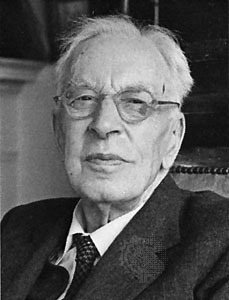
In this masterly and comprehensive book the author of A Study of History surveys the development of Hellenism—Graeco-Roman culture—from its earliest beginnings at the end of the second millenium B.C. until its decline in the seventh century of the Christian era—a period of some 1800 years. After an analysis of the city-state's evolution, Dr. Toynbee traces the spread of Hellenic culture, first in the Mediterranean basin, and later under Alexander to East. He assesses its response to the challenges presented by neighboring barbarians, and examines the failure of the city-states and then of monarchy and federation to establish political concord. Finally, he traces the rise of Rome, her adoption of Hellenism and its decay under the Empire, and the part played by Christianity in the ultimate collapse of Hellenic culture. Hellenism is not a mere chronicle of events, however, but a brilliant assessment of the contribution made by Graeco-Roman civilization in every sphere—art, religion, philosophy, political science, and technics. It is enriched by Mr. Toybee's first-hand knowledge of the heart of the Hellenic world, "the theatre in which the drama was performed." As he says, "One instant's glimpse of a landscape with one's own eyes can tell one more than years spent on studying maps and texts."
Author

The British historian Arnold Joseph Toynbee was born in London on 14 April 1889 and died on 22 October 1975 in York, North Yorkshire, England. He was educated at Winchester College and Balliol College, Oxford. He was the nephew of economic historian Arnold Toynbee, with whom he is sometimes confused. His first marriage to Rosalind Murray, with whom he had three sons, ended in divorce in 1946. Professor Toynbee then married Veronica M. Boulter, his research assistant. From 1919 to 1924 Arnold J. Toynbee was professor of modern Greek and Byzantine history at King's College, London. From 1925 until 1955 Professor Toynbee served as research professor and Director of Studies at the Royal Institute of International Affairs. During both world wars he worked for the British Foreign Office. He was a delegate to the Paris Peace Conference in 1919. While Professor Toynbee's Gifford Lectures were published as An Historian's Approach to Religion (1956) he is best known for his 12-volume A Study of History (1934-1961). This massive work examined the growth, development and decay of civilizations. He presented history as the rise and fall of civilizations rather than nation-states or ethnic groups. According to his analysis of civilizations the well-being of a civilization depends on its ability to deal successfully with challenges. Professor Toynbee oversaw the publication of The Survey of International Affairs published by Oxford University Press under the auspices of the Royal Institute of International Affairs from 1925 to 1977. In addition to A Study of History among his numerous publications are the following: Nationality and the War (1915), The Armenian Atrocities: The Murder of a Nation (1915), The German Terror in France: An Historical Record (1917), Turkey, a Past and a Future (1917), The Conduct of British Empire Foreign Relations since the Peace Settlement (1928), Civilization on Trial (1948), Christianity among the Religions of the World (1958), Democracy in the Atomic Age (1957), and Between Niger and Nile (1965).